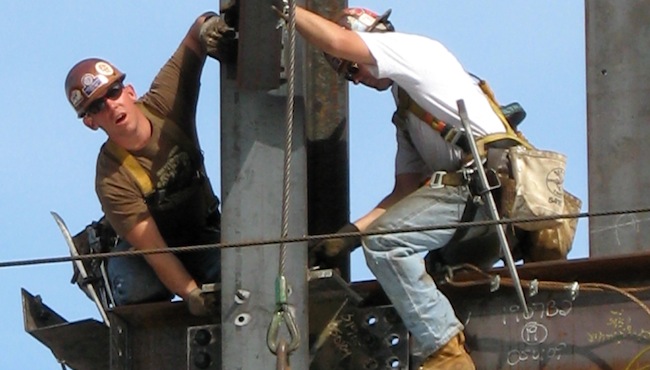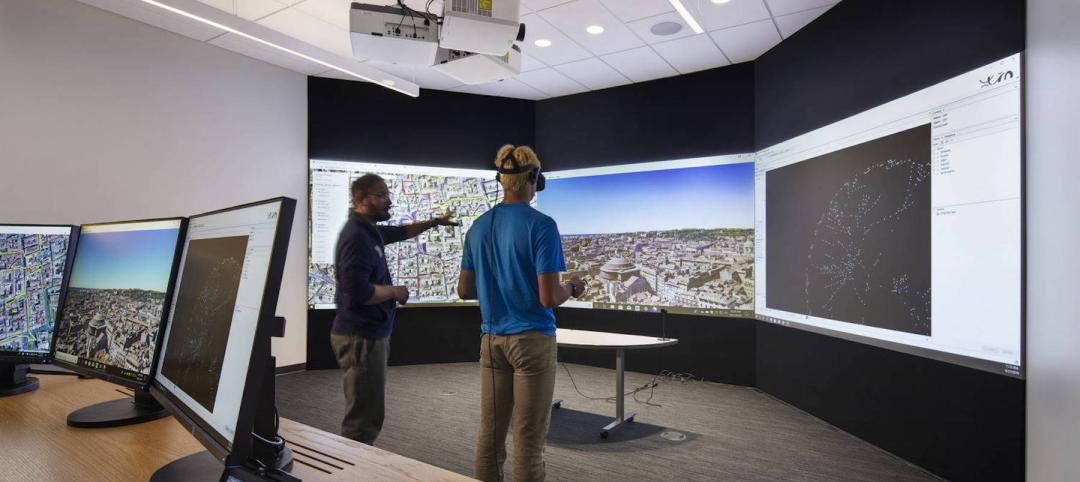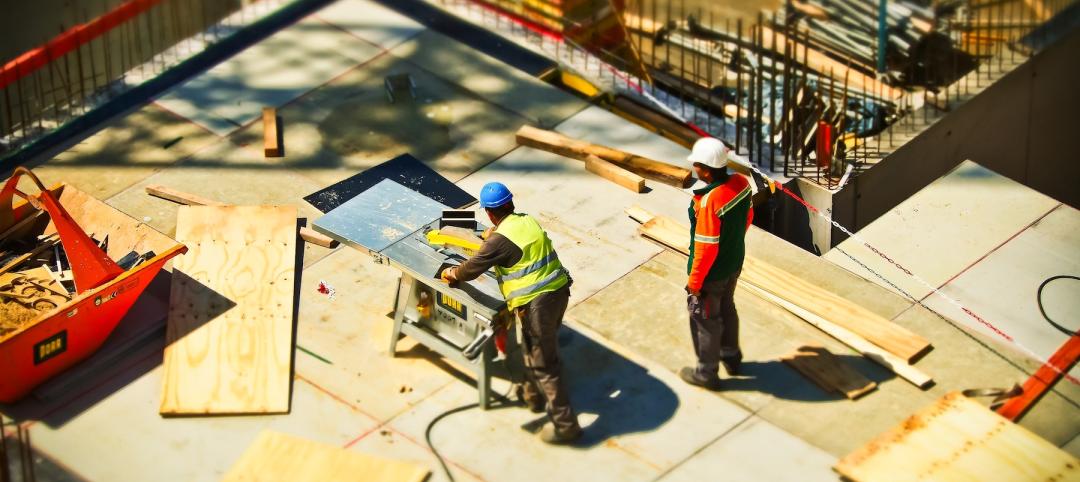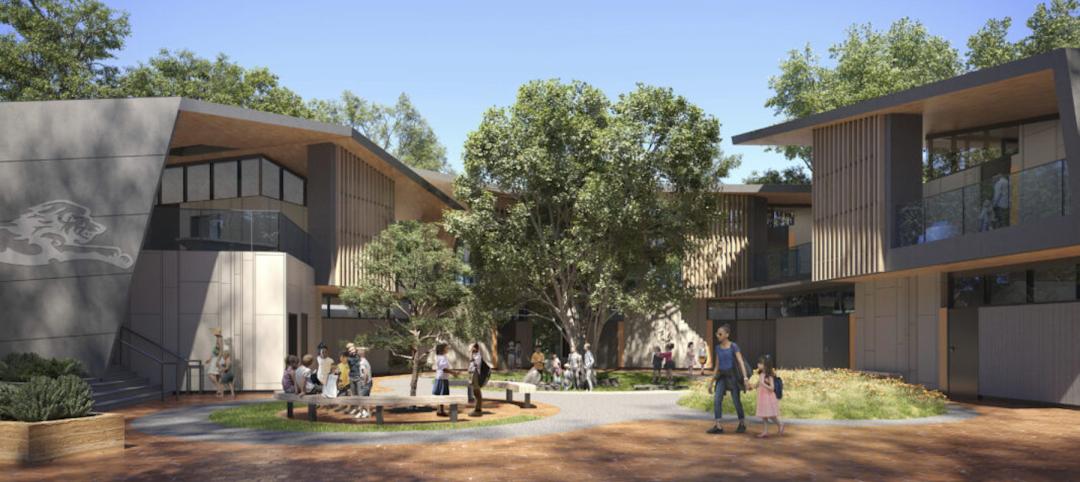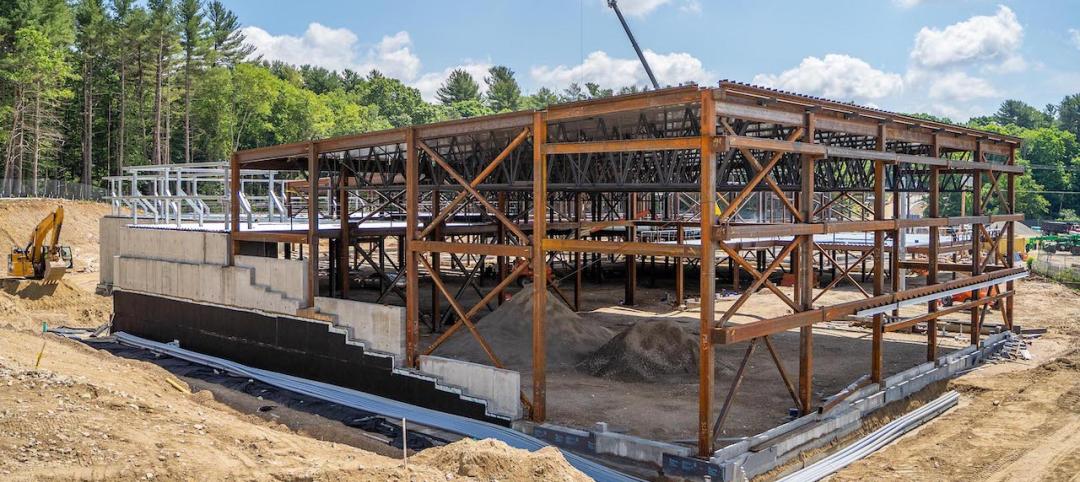Tens of thousands of employers and more than 1 million workers across the country are joining the Occupational Safety and Health Administration from June 2 - 6 in safety stand-downs to focus on saving lives and preventing fatalities from falls in the construction industry.
Falls are the leading cause of death in construction and more than 300 workers lost their lives in falls during 2012. Lack of fall protection is the most frequently cited OSHA violation, proving that these deaths are preventable when employers provide the right safety equipment and properly train workers how to use it.
As a part of the Stand-Down, companies and workers will voluntarily stop work to host safety events focusing on how to prevent these fatalities.
The purpose of the National Fall Prevention Stand-Down is to raise awareness of preventing fall hazards in construction. Fatalities caused by falls from elevation continue to be a leading cause of death for construction workers, accounting for 269 of the 775 construction fatalities recorded in 2012. Those deaths were preventable. Fall prevention safety standards were among the top 10 most frequently cited OSHA standards, during fiscal year 2012.
What is a Safety Stand-Down?
A Safety Stand-Down is a voluntary event for employers to talk directly to employees about safety, this year we are focusing on “Fall Hazards" and to reinforce the importance of "Fall Prevention."
How to Conduct a Safety Stand-Down and FAQ's
Companies can conduct a Safety Stand-Down by taking a break to have a toolbox talk or another safety activity such as conducting safety equipment inspections, developing rescue plans, or discussing job specific hazards. Managers are encouraged to plan a stand-down that works best for their workplace anytime during the week of June 2-6, 2014. See Suggestions to Prepare for a Successful "Stand-Down."
The goal is to have over 25,000 employers and 500,000 workers to hold a Stand-Down and if we meet this goal, we will have touched almost 1 out of 10 construction workers in the country.
Who Can Participate?
Participants may include employer’s trade associations, federal, state and local governmental agencies, professional societies, institutes, and consumer/labor-management interest organizations, sub-and independent contractors.
Partners
OSHA is partnering with key groups to assist with this effort, including the National Institute for Occupational Safety and Health (NIOSH), OSHA approved State Plans, State consultation programs, the Center for Construction Research and Training (CPWR), the American Society of Safety Engineers (ASSE), the National Safety Council, and the OSHA Training Institute (OTI) Education Centers.
Certificate of Participation
Employers can provide feedback about their Stand-Down and receive a Certificate of Participation signed by the Secretary of Labor, Thomas E. Perez. The page will remain active through July 15, 2014.
Share Your Story With Us
If you want to share information with OSHA on your Safety Stand-Down, Fall Prevention Programs or suggestions on how we can improve future initiatives like this, please send your email to oshastanddown@dol.gov.
Related Stories
AEC Tech | Aug 8, 2022
The technology balancing act
As our world reopens from COVID isolation, we are entering back into undefined territory – a form of hybrid existence.
Legislation | Aug 5, 2022
D.C. City Council moves to require net-zero construction by 2026
The Washington, D.C. City Council unanimously passed legislation that would require all new buildings and substantial renovations in D.C. to be net-zero construction by 2026.
Cultural Facilities | Aug 5, 2022
A time and a place: Telling American stories through architecture
As the United States enters the year 2026, it will commence celebrating a cycle of Sestercentennials, or 250th anniversaries, of historic and cultural events across the land.
Sponsored | | Aug 4, 2022
Brighter vistas: Next-gen tools drive sustainability toward net zero line
New technologies, innovations, and tools are opening doors for building teams interested in better and more socially responsible design.
| Aug 4, 2022
Newer materials for green, resilient building complicate insurance underwriting
Insurers can’t look to years of testing on emerging technology to assess risk.
Sustainability | Aug 4, 2022
To reduce disease and fight climate change, design buildings that breathe
Healthy air quality in buildings improves cognitive function and combats the spread of disease, but its implications for carbon reduction are perhaps the most important benefit.
Multifamily Housing | Aug 4, 2022
Faculty housing: A powerful recruitment tool for universities
Recruitment is a growing issue for employers located in areas with a diminishing inventory of affordable housing.
Multifamily Housing | Aug 3, 2022
7 tips for designing fitness studios in multifamily housing developments
Cortland’s Karl Smith, aka “Dr Fitness,” offers advice on how to design and operate new and renovated gyms in apartment communities.
Building Materials | Aug 3, 2022
Shawmut CEO Les Hiscoe on coping with a shaky supply chain in construction
BD+C's John Caulfield interviews Les Hiscoe, CEO of Shawmut Design and Construction, about how his firm keeps projects on schedule and budget in the face of shortages, delays, and price volatility.
Codes and Standards | Aug 3, 2022
Some climate models underestimate risk of future floods
Commonly used climate models may be significantly underestimating the risk of floods this century, according to a new study by Yale researchers.


